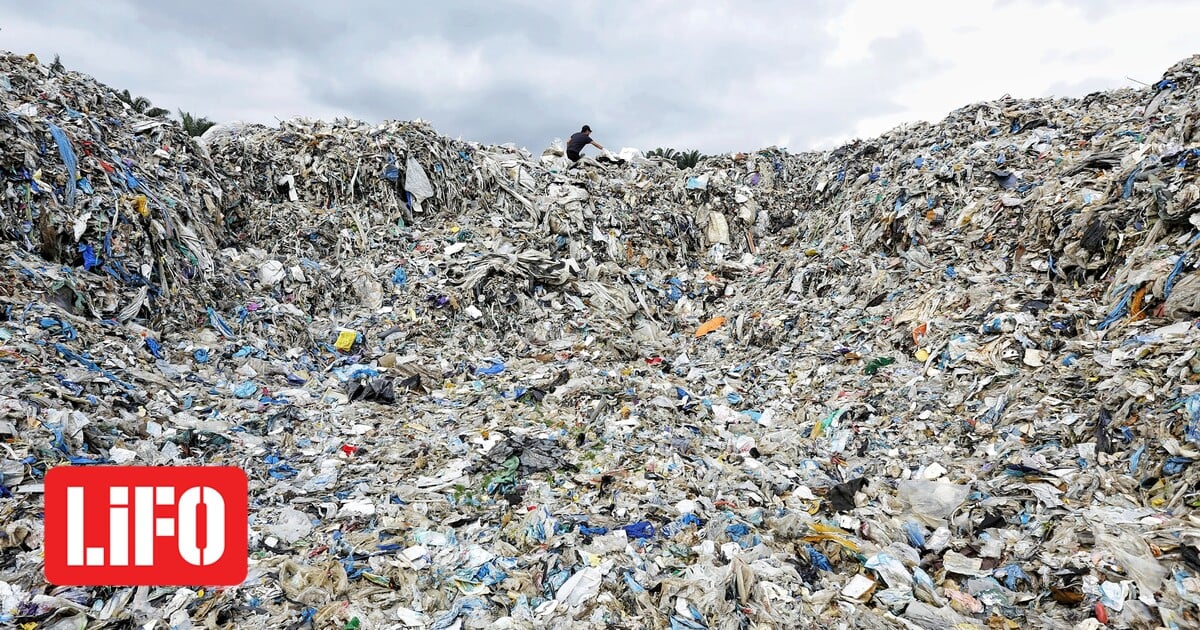
It's time to stop “recycling” plastic. Plastic as a material is non-recyclable and the best thing we can do to celebrate Earth Day this year is to acknowledge this fact.
As author Eve O. wrote: Schaub wrote in a Washington Post article, “I know this seems counterintuitive. We've been told for decades that the solution to the plastic waste crisis is to do more, and recycle better: if only we could do better sorting! I hope we can get there.” Better recycling techniques! If only we washed and dried plastics better All this is just a smoke screen, designed to distract us from the fact that plastic recycling – if by recycling we mean turning a used material into a new material of similar value and function – It's just a legend.
As Schwab adds in her article, “Unlike paper, glass, and metals, plastics are not easily or efficiently transformed into new products. What is brought to us for “recycling” plastic is expensive, energy-intensive, and toxic. In addition, the process requires the addition of a surprising amount of New virgin plastic – about 70% – to hold the newly formed plastic body. As a result, only about 5% of the plastic is “recycled” (or, more accurately, “recycled” into a lower quality product). 68% paper and cardboard recycling.
Considering that we, as a society, have been trying hard to become better at recycling plastic since the 1970s, 5% represents a clear and colossal failure. He tells us that “recycling” plastic is essentially an empty gesture.
Many ecologists will protest this claim. And they can rightly point out that plastics with a resin identification code of 1 or 2 (the number inside the “fishing arrows” triangle on many plastics) have a higher recycling success rate: about 30%. Shouldn't we at least support the recycling of this plastic?
For a long time I thought so.
But this leads us to another myth: that plastic is harmless to human health. What many people don't know is that plastic is made up of two components: fossil fuels and toxic chemicals. When we say toxic chemicals, we're talking about some pretty nasty stuff: heavy metals, PFAS, flame retardants, and persistent organic pollutants. Tens of thousands of proprietary chemical formulations are involved in the production of plastic, most of which have never been tested for their effects on human health.
As the Washington Post article adds: “This means that even if we could improve plastic recycling, we shouldn't want to. When you grind up, melt, and reshape a bunch of plastic (by adding a lot of new virgin plastic to bind it together… Some), all those thousands of toxic plastic chemicals combine to create a Frankenstein material that has what scientists call “unintentionally added substances in it, which means chemicals that aren't supposed to be there start to appear,” a study concluded A study last year found that recycled plastic contains “an unknown number of chemical compounds in unknown concentrations.”
Results; You don't want your food to be wrapped in mysterious recycled plastic. But what if we only used recycled plastic for non-edible items like picnic benches? Next, we have another very troubling aspect of plastic to deal with: microplastics. We've been hearing more and more about it lately, because scientists are finding it everywhere they look – in the environment and in the human body.
The chemical composition of all plastic – no matter what type – is a synthetic polymer that never decomposes or disappears. Instead, it breaks down into smaller and smaller pieces until it turns into microplastics or even nanoplastics. These tiny particles are still plastic, still toxic, but now they are so small that we eat and breathe them all the time. Microplastic particles have been detected in human lungs, bloodstream and breast milk, as well as in the placentas of unborn babies. Scientists have found microplastic particles in semen, testicles and the brain.
The effect of all this plastic on our bodies is still being discovered, but we know it's substantial. A recent study concluded that the burden of disease resulting from exposure to plastic includes premature birth, obesity, heart disease and cancer, and the cost of health care reached $249 billion in 2018 alone, and the human body has become the garbage can of a culture addicted to plastic.
Trying to recycle plastic makes the microplastics problem worse. A study of just one plastic recycling facility found that it can wash 3 million pounds of microplastics into its wastewater each year — which then ends up settling in our city's water systems or being released into the environment.
As Eve O. Schaub adds in her Washington Post article, “Right now, we all have microplastics passing through our bodies. This is not the fault of insufficient recycling. This is due to too much plastic. So I say: Let's treat plastic like toxic waste and send it where it can't cause harm to people.
Right now, this place is a dump. “And then we have to start working on the real solution: doing it much less.”

“Hipster-friendly coffee fanatic. Subtly charming bacon advocate. Friend of animals everywhere.”





More Stories
F-16 crashes in Ukraine – pilot dies due to his own error
Namibia plans to kill more than 700 wild animals to feed starving population
Endurance test for EU-Turkey relations and Ankara with Greece and Cyprus